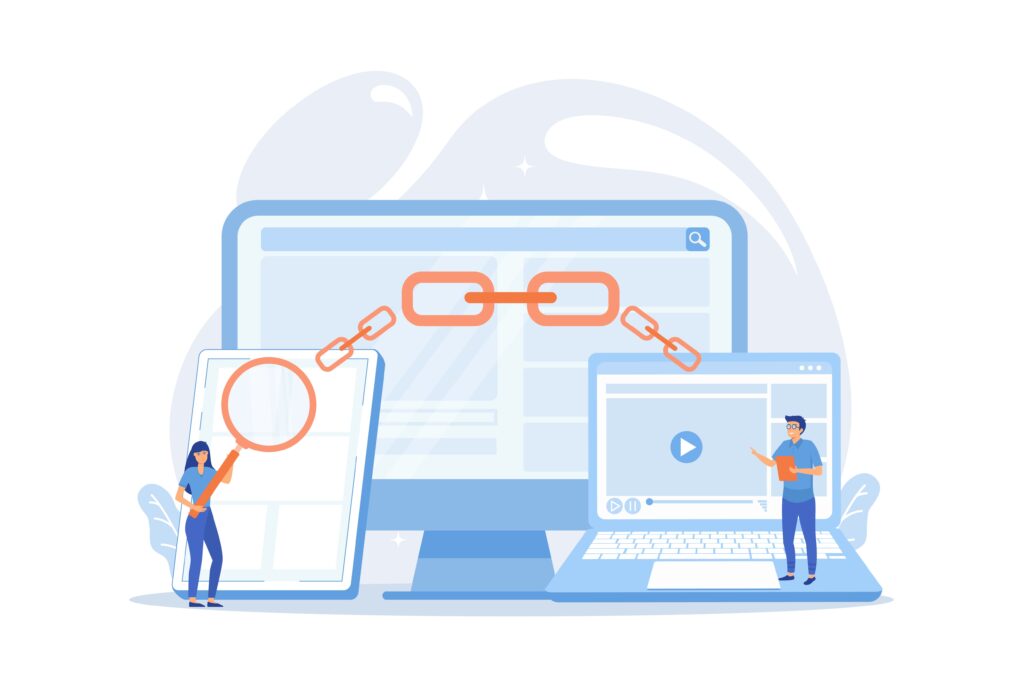Link building is an essential aspect of SEO, as it helps websites gain higher search engine rankings and increase their visibility online. However, link-building is not always straightforward, and there are several link-building mistakes that website owners can make that can negatively impact their search engine rankings.
Focusing solely on quantity over quality, using black hat tactics, not diversifying your link profile, neglecting anchor text diversity and link relevance, not keeping up with link changes, and overlooking user experience are all mistakes that can hurt your SEO efforts.
In this article, we will discuss some of the most common link-building mistakes that website owners make.
Common Link-Building Mistakes Which You Should Avoid Making

Link building is a critical component of SEO and can greatly impact a website’s search engine rankings and overall online visibility. However, there are several common mistakes that website owners must avoid when building links.
Here are some of the common link-building mistakes which you must know about.
1. Focusing Only On Quantity Over Quality
One of the biggest link-building mistakes is focusing solely on the number of links rather than the quality of the links.
Low-quality links from spammy websites or unrelated sources can actually hurt your SEO, while high-quality links from relevant sources can greatly improve it. Instead of focusing on quantity, focus on building relationships with high-quality websites in your niche.
2. Using Of The Black Hat Tactics
Black hat SEO tactics, such as buying links or participating in link schemes come under the top link-building mistakes.
This can result in search engine penalties and also harm your website’s reputation. It’s important to stick to ethical and sustainable link-building strategies to avoid risking your website’s search engine rankings.
3. Not Diversifying Your Link Profile
Another link-building mistake is relying too heavily on one type of link, such as directory links or guest post links.
It’s important to diversify your link profile by acquiring links from various sources, including high-authority websites, niche-related websites, and local directories.
4. Ignoring Anchor Text Diversity
Anchor text is the clickable text that appears in a hyperlink. Overusing the same exact match anchor text, especially with commercial keywords, can trigger spam signals for search engines.
Instead, vary your anchor text and use relevant variations or brand terms to signal natural link patterns.
5. Neglecting Link Relevance
Links from irrelevant or unrelated sources can have little to no impact on your search engine rankings.
It’s important to seek links from sources relevant to your niche, industry, or location to signal authority to search engines and improve user relevance.
6. Not Keeping Up With Link Changes
Link building is an ever-evolving practice, and what worked a few years ago might not work today.
Algorithms, regulations, and best practices change over time, and it’s important to stay up to date with the latest link-building trends and changes in the SEO industry to avoid outdated and ineffective tactics.
7. Overlooking User Experience
The primary goal of link building is not just to get more links but to improve the user experience of your website visitors.
Links that provide value to users by directing them to useful or interesting content can increase dwell time, reduce bounce rate and improve engagement metrics.
On the other hand, links that are difficult to find, navigate, or irrelevant can frustrate users and harm user experience. Ultimately these link-building mistakes hurt your SEO.
Conclusion
To build high-quality and sustainable links, it’s essential to focus on creating valuable content, building relationships with high-authority websites in your niche, diversifying your link profile, and staying up-to-date with the latest link-building trends and best practices.
By avoiding these common link-building mistakes, website owners can improve their search engine rankings, establish brand authority, and drive targeted traffic to their websites, ultimately leading to greater online success.
Read Also
- What Are High-Quality Backlinks And Low-Quality Backlinks?
- What Is A Dofollow Link And Where Can You Use It?
- What Is A Nofollow Link And Where Can You Use It?




